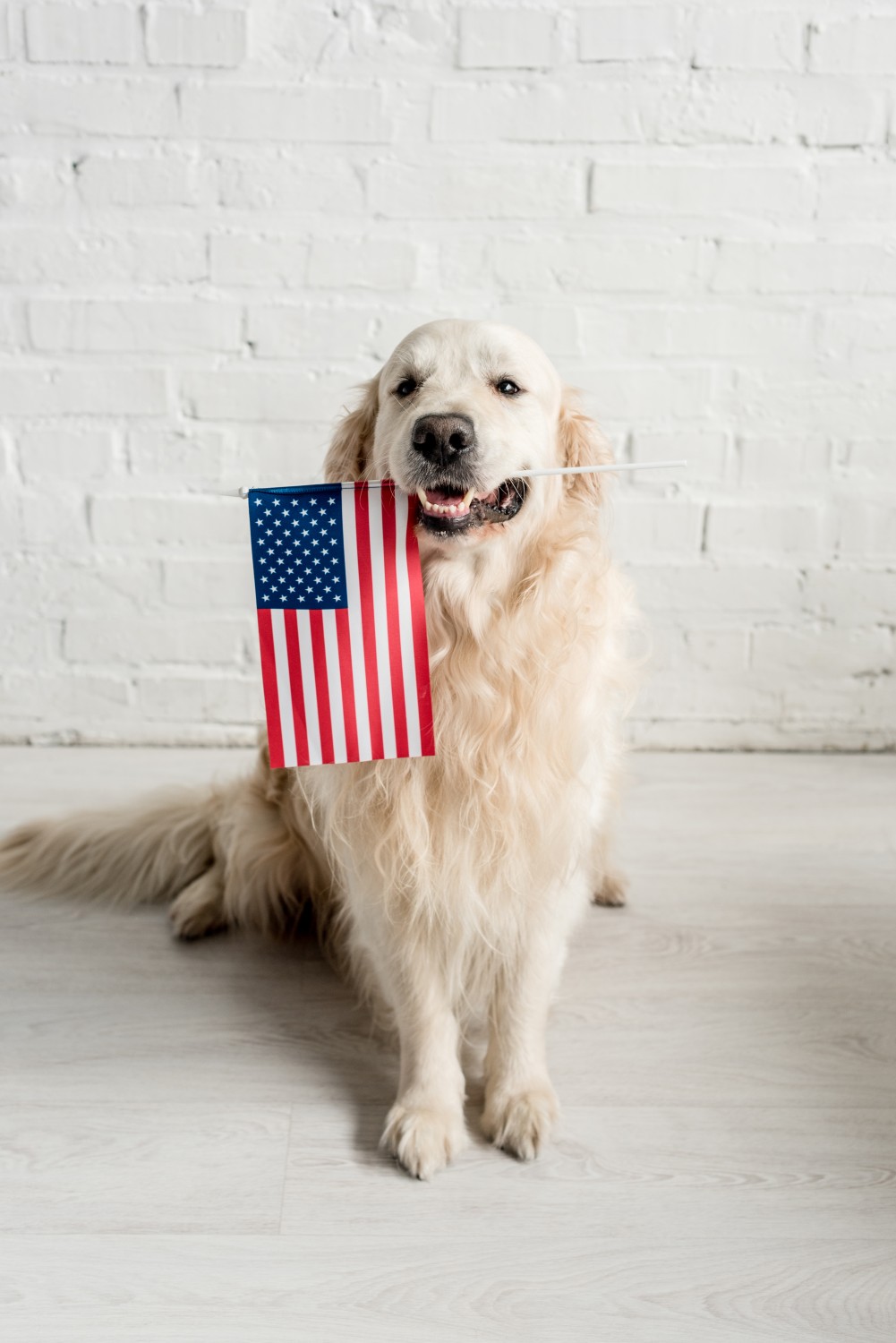Fourth of July Safety

To the beloved clients and pets of Acorn Veterinary Clinic,
The firework season is upon us and many animal enthusiasts are wondering how best they can prepare this year. If this sounds like you then look no further!
Here is some information on firework anxiety in dogs and cats, as well as some tips on how best you can keep your pets comfortable over the coming month.
Firework anxiety is a type of generalized noise-related anxiety found in many animals brought on by bright flashes and especially loud sounds. While there are times of the year when these events will be more common, such as during summer months, it is possible for many different types of events to cause anxiety such as this.
This type of reaction to fireworks is usually characterized by excessive vocalization, pacing, panting, hiding, and generally an increase in attention-seeking behavior.
Here are some things that can help mitigate these reactions:
• Adaptil (dogs)/ Feliway (cats) – These calming pheromones can help pets feel more at ease around the house.
• Music/ TV shows – Whether classical music or a classic sitcom, having a little background noise to take their attention away from the fireworks and make them feel less alone when people are out of the house can be a viable part of your approach.
• Headwraps/ Ear muffs – You can try this to attempt to muffle the noise from the fireworks.
• Turning off the lights + crate rest – Keeping your pets in a dark and enclosed area during peak firework hours can help reduce visual stimulation.
• Body wraps – Anxiety-relieving compression shirts/ vests can help to calm your pet.
• Behavior training – For pets with mild-to-moderate firework anxiety, counter condition training or relaxation conditioning can help to reduce the intensity with which they respond to firework-related stimuli. This approach requires dedication and consistency. Read more about it here.
• Medication – Medication with sedative and/ or anxiety-reducing effect may be an appropriate solution for pets with high firework anxiety.
Click here to read more about these methods.
When you are considering how best to manage your pet’s anxiety this firework season it is important to think about the severity of your pet’s reaction and how best you will be able to integrate a method. You may find that just one approach works well, or you may find that you need a combination of different methods to achieve the result you need. As mentioned earlier, counter-conditioning and/ or relaxation conditioning can both be viable options for reducing firework-related anxiety and reactions. These methods do require a solid plan and dedication, however, and for pets with high firework anxiety it may be very difficult to make satisfactory progress. In that case you can also consider sedatives or anxiety-reducing medication. It is best to start a discussion with your veterinarian sooner rather than later about which of these options may be best for your pet. If they believe medication to be the appropriate route, let them figure out the right dosage and medication for the situation. The dosage you use for your own medications can be quite different than what a dog or a cat would need, even if the medication has the same name.
Another important consideration for pet owners is that the firework season is also the time of year when many pets escape from the house or out of the yard due to high levels of fear. Many times those anxiety-related behaviors are unfamiliar to pet owners, making it difficult to anticipate that their pet could become lost. Teach your loved ones to recognize anxious behaviors in your pets so that they can be prepared to handle the situation appropriately. Especially in urban areas, a lost pet is at high risk of injury or death due to vehicle traffic. For pets in the house, family members must take care to keep doors shut and windows closed during this time. When you take a pet out of the house keep them on a good, strong leash in case they get scared. Pets who are kept outdoors are at especially high risk as they are usually not monitored as closely. The stimulus from the fireworks can be enough for them to escape their area and become lost when they may not normally have reason to leave. Consider carefully inspecting their area for potential points of escape or bringing these pets inside during firework hours.
The firework season is a time of great celebration for many, but to our pets it can be a difficult experience. If you have concerns about how to approach firework anxiety this year, it is never too much to schedule an appointment with your veterinarian to discuss those behaviors and how you can manage them. Whether through environment modification, behavior training, or medication, they will work with you and your pet to find an appropriate solution.
If you would like to schedule an appointment with one of our doctors, please give us a call at (530) 753-7580!
Stay safe!
Your friends at Acorn Veterinary Clinic
| 





